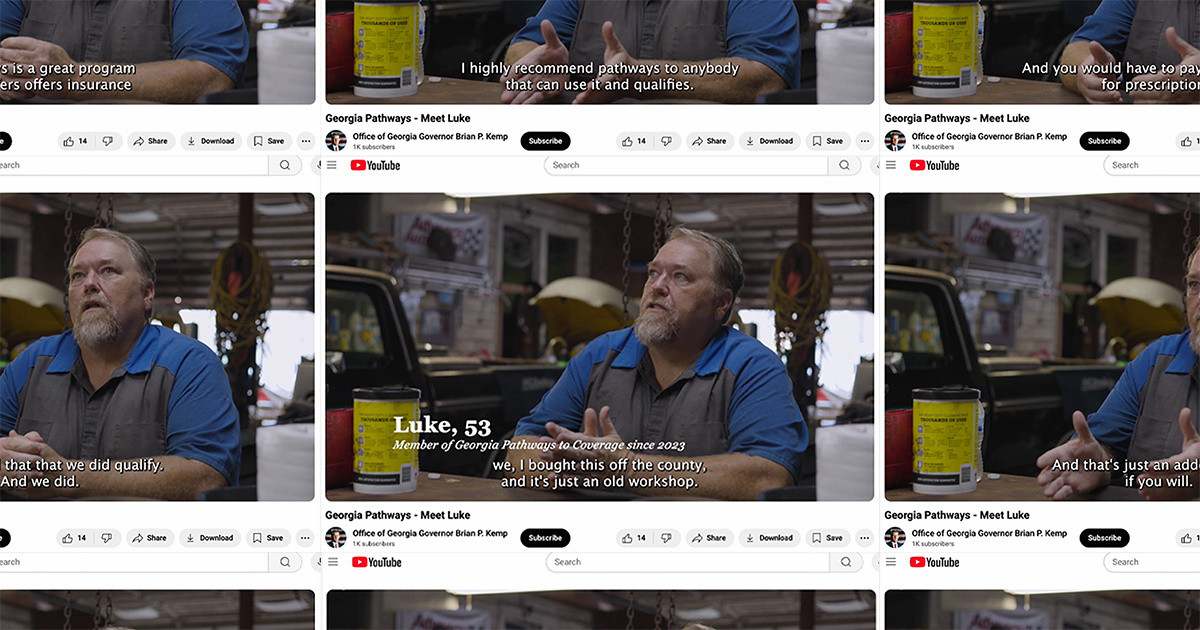From Advocate to Adversary: A Georgia Man’s Battle with Medicaid Work Requirements
ATLANTA, GA — For years, 42-year-old Michael Reynolds championed Georgia’s Medicaid work requirements, believing they would promote self-sufficiency. Now, after witnessing their devastating impact on vulnerable communities, he’s become one of their fiercest critics. His journey from supporter to opponent mirrors a growing backlash against policies that tie healthcare access to employment, leaving thousands without coverage.
The Rise and Fall of a Policy Champion
Reynolds, a small business owner from Macon, initially backed Georgia’s Medicaid work requirements when they were introduced in 2021. “I thought it was common sense—people should work to earn benefits,” he recalls. But his perspective shifted when his sister, a part-time caregiver, lost coverage due to bureaucratic hurdles. “She fell through the cracks, and suddenly, this abstract policy had a face.”
Georgia’s Pathways to Coverage program—the only active Medicaid work requirement in the U.S. as of 2024—requires enrollees to document 80 monthly hours of employment, education, or community service. State data reveals stark outcomes:
- Only 3,500 people gained coverage under the program as of March 2024
- Over 400,000 Georgians remain uninsured in the Medicaid “coverage gap”
- Administrative costs exceeded $26 million in the program’s first year
The Human Cost of Bureaucratic Barriers
Healthcare advocates argue the requirements create unnecessary obstacles. “These policies ignore the realities of low-wage work,” says Dr. Alicia Monroe, a health policy professor at Emory University. “Many eligible Georgians work irregular hours or lack internet access to file paperwork.”
Reynolds witnessed this firsthand while volunteering at a free clinic. “I met a construction worker who missed his window to report hours because his worksite had no cell service. His diabetes medication lapsed—that’s life-threatening.”
Proponents, however, maintain the requirements encourage responsibility. State Senator Blake Tiller (R), who co-sponsored the legislation, argues, “Taxpayers deserve assurance that public funds support those actively contributing to society.”
A System Under Scrutiny
Recent studies underscore the program’s challenges:
- A 2023 Kaiser Family Foundation analysis found Georgia’s enrollment process takes 3x longer than traditional Medicaid
- 40% of applicants abandon the process due to documentation requirements
- Rural counties report particularly low participation rates
The Biden administration has repeatedly tried to rescind work requirements nationwide, but Georgia’s program survived legal challenges due to its unique structure. Meanwhile, neighboring states that expanded Medicaid without requirements—like North Carolina in 2023—have insured significantly more residents.
Turning Anger Into Action
Reynolds now leads a grassroots campaign to reform the policy. His coalition has gathered 15,000 signatures supporting a waiver for caregivers and seasonal workers. “This isn’t about handouts—it’s about healthcare being a basic right,” he says.
State lawmakers appear divided. While some Republicans propose expanding qualifying activities to include job training, Democrats push for full Medicaid expansion. The debate intensifies as Georgia faces a hospital closure crisis—nine rural facilities have shuttered since 2020, citing high uncompensated care costs.
What’s Next for Medicaid in Georgia?
With federal matching funds for the Medicaid work requirements program set to expire in 2025, policymakers face mounting pressure to reconsider. Reynolds plans to testify at upcoming legislative hearings, armed with stories from affected families.
“This fight changed me,” he reflects. “When you see people choosing between groceries and insulin, abstract arguments about personal responsibility don’t hold up.” As Georgia’s healthcare landscape evolves, his transformation from advocate to adversary may signal broader shifts in the Medicaid debate nationwide.
Concerned about healthcare access in your community? Contact the Georgia Health Initiative to learn how you can support coverage expansion efforts.
See more WebMD Network



